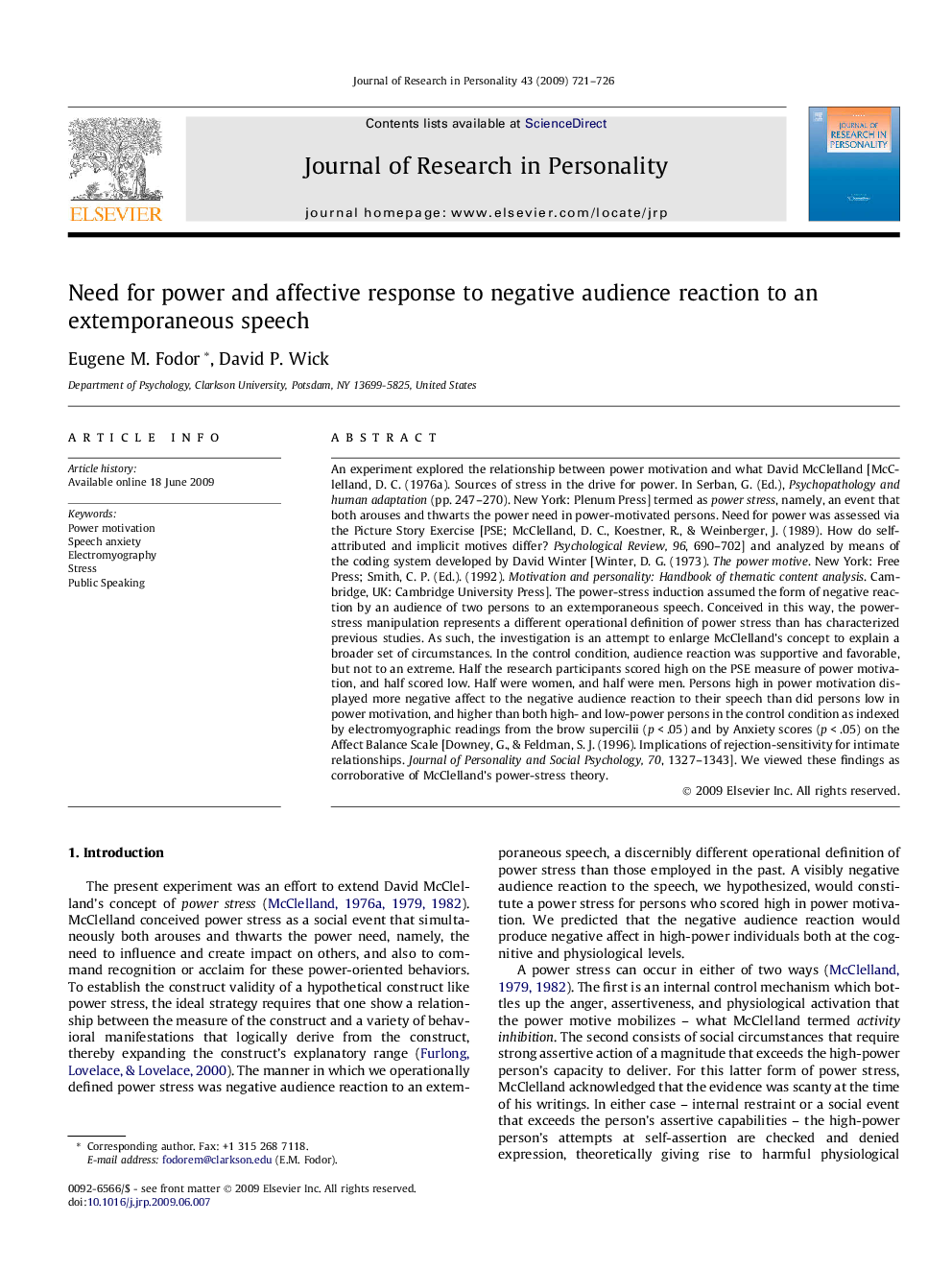| کد مقاله | کد نشریه | سال انتشار | مقاله انگلیسی | نسخه تمام متن |
|---|---|---|---|---|
| 952021 | 927265 | 2009 | 6 صفحه PDF | دانلود رایگان |

An experiment explored the relationship between power motivation and what David McClelland [McClelland, D. C. (1976a). Sources of stress in the drive for power. In Serban, G. (Ed.), Psychopathology and human adaptation (pp. 247–270). New York: Plenum Press] termed as power stress, namely, an event that both arouses and thwarts the power need in power-motivated persons. Need for power was assessed via the Picture Story Exercise [PSE; McClelland, D. C., Koestner, R., & Weinberger, J. (1989). How do self-attributed and implicit motives differ? Psychological Review, 96, 690–702] and analyzed by means of the coding system developed by David Winter [Winter, D. G. (1973). The power motive. New York: Free Press; Smith, C. P. (Ed.). (1992). Motivation and personality: Handbook of thematic content analysis. Cambridge, UK: Cambridge University Press]. The power-stress induction assumed the form of negative reaction by an audience of two persons to an extemporaneous speech. Conceived in this way, the power-stress manipulation represents a different operational definition of power stress than has characterized previous studies. As such, the investigation is an attempt to enlarge McClelland’s concept to explain a broader set of circumstances. In the control condition, audience reaction was supportive and favorable, but not to an extreme. Half the research participants scored high on the PSE measure of power motivation, and half scored low. Half were women, and half were men. Persons high in power motivation displayed more negative affect to the negative audience reaction to their speech than did persons low in power motivation, and higher than both high- and low-power persons in the control condition as indexed by electromyographic readings from the brow supercilii (p < .05) and by Anxiety scores (p < .05) on the Affect Balance Scale [Downey, G., & Feldman, S. J. (1996). Implications of rejection-sensitivity for intimate relationships. Journal of Personality and Social Psychology, 70, 1327–1343]. We viewed these findings as corroborative of McClelland’s power-stress theory.
Journal: Journal of Research in Personality - Volume 43, Issue 5, October 2009, Pages 721–726